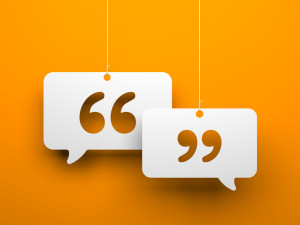by infonista | Feb 26, 2019 | Job Hunting, Professional Branding
Once you have a
good sense of what types of jobs you find interesting and the skills required
for those jobs, your next step is to clearly understand how to position your
strengths for a potential employer in a way that aligns with the organization’s
needs as identified in the job postings you’ve read.
Overall, you
want to target all of your “messages,” that is, your resume, cover letter, and
interview responses, toward one key value statement: “I am the solution to your
problem.” When you’re ready to apply for a job, your goal is to learn, from the
job posting and doing as much research on the organization as possible, what
problem, challenge, or opportunity it’s trying to address through the posted
position, and then focus entirely on the value you bring that will help it
successfully do so.
Basically, your
communications should showcase four things:
(more…)
by infonistaadmin | Sep 5, 2017 | LIS Career Strategy, Professional Branding
 How to tell the world you’re terrific when you don’t want to talk to anybody
How to tell the world you’re terrific when you don’t want to talk to anybody
Personal branding – showcasing your professional strengths – is one of the most important aspects of building a resilient career. However, if you’re an introvert, the idea of telling others about yourself can be unnerving at best, nausea-inducing at worst.
So what if your “elevator speech” generally consists of a muttered “which floor do you want?” The good news is that you’re living in the right era, because these days you can do a major portion of your brand-building online. (more…)
by infonistaadmin | Feb 28, 2017 | Professional Branding

By now most of us have gotten the message that we’re all self-employed, regardless of whom we work for.
We’re in charge of our careers and job opportunities, and that means being ready to land on our feet should a pink slip happen to land on our desk.
And a big part of that “being ready” is making sure that you’ve built up professional visibility – your brand – outside your employer.
Although losing a job is tough, finding a new one will be much easier if you’ve taken steps to become professionally visible outside the universe of your company and co-workers. What are some of the best (and easiest) ways you can do this? (more…)
by infonistaadmin | Dec 20, 2016 | LinkedIn and Your Career, Professional Branding
 One of the most powerful types of “social proof” (testaments to your professional strengths) hiring managers can see is a great recommendation on your LinkedIn profile.
One of the most powerful types of “social proof” (testaments to your professional strengths) hiring managers can see is a great recommendation on your LinkedIn profile.
And people who like you well enough to be willing to write a recommendation for you do sincerely want to help you out!
But actually getting that recommendation written for you? That’s where things tend to fall apart…. (more…)
by infonistaadmin | Sep 27, 2016 | Job Hunting, Professional Branding
 Yeah, yeah, yeah – you keep hearing that you should have at least a few recommendations from significant others (like previous bosses, not your spouse) on your LinkedIn profile page, but really – is it that important?
Yeah, yeah, yeah – you keep hearing that you should have at least a few recommendations from significant others (like previous bosses, not your spouse) on your LinkedIn profile page, but really – is it that important?
Actually yes, and the reason it is that important is a concept called “social proof” – which is when someone respected by others affirms your worth or value to them. In the same way you’ll try a new restaurant because your friend the foodie swears it’s terrific, social proof lets us substitute the judgment of a trusted friend, colleague, or professional for our own first-hand knowledge. Based on their (knowledgeable) judgment, we’ll give it a go.
Forms of social proof
In the online world, there are a number of ways to provide social proof. For example: (more…)
by infonistaadmin | Sep 20, 2016 | LinkedIn and Your Career, LIS Career Strategy, Professional Branding
 In the old days, people would arrive for interviews with printed copies of letters of recommendation. Resumes would state “references available upon request.”
In the old days, people would arrive for interviews with printed copies of letters of recommendation. Resumes would state “references available upon request.”
Now, however, as a jobseeker you have a much better and more effective way to showcase your strengths. When someone submits a recommendation for your LinkedIn profile, that recommendation can be seen 24/7, without you having to “present” it to an interviewer. (This is especially important when the majority of hiring managers will check out your LinkedIn profile before making a decision to interview you.)
Are LinkedIn endorsements and recommendations the same?
Not even close. (more…)






